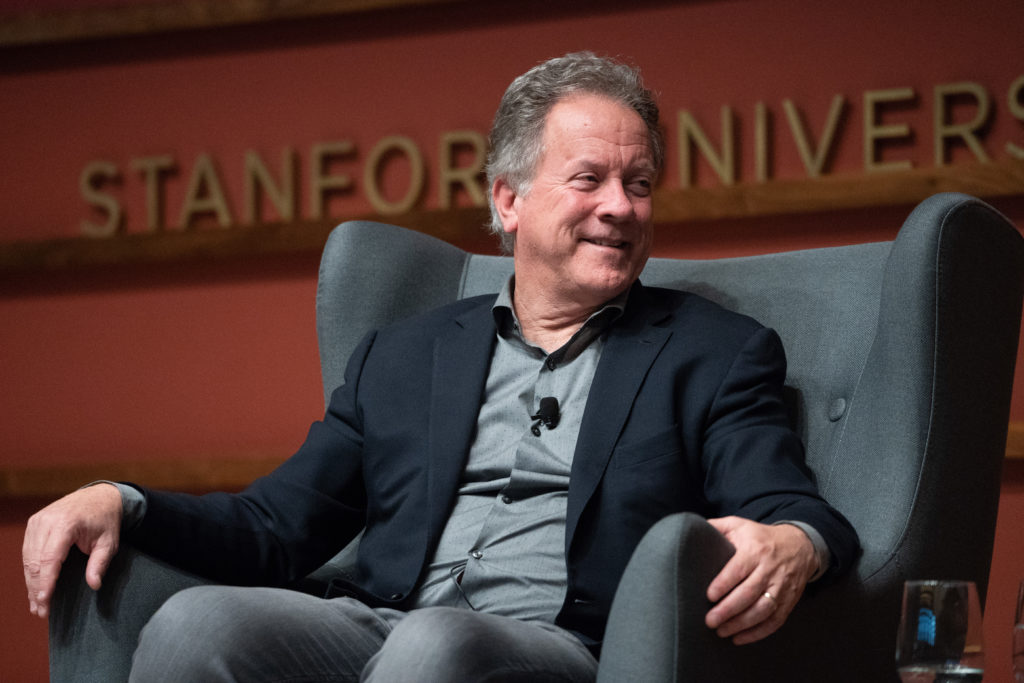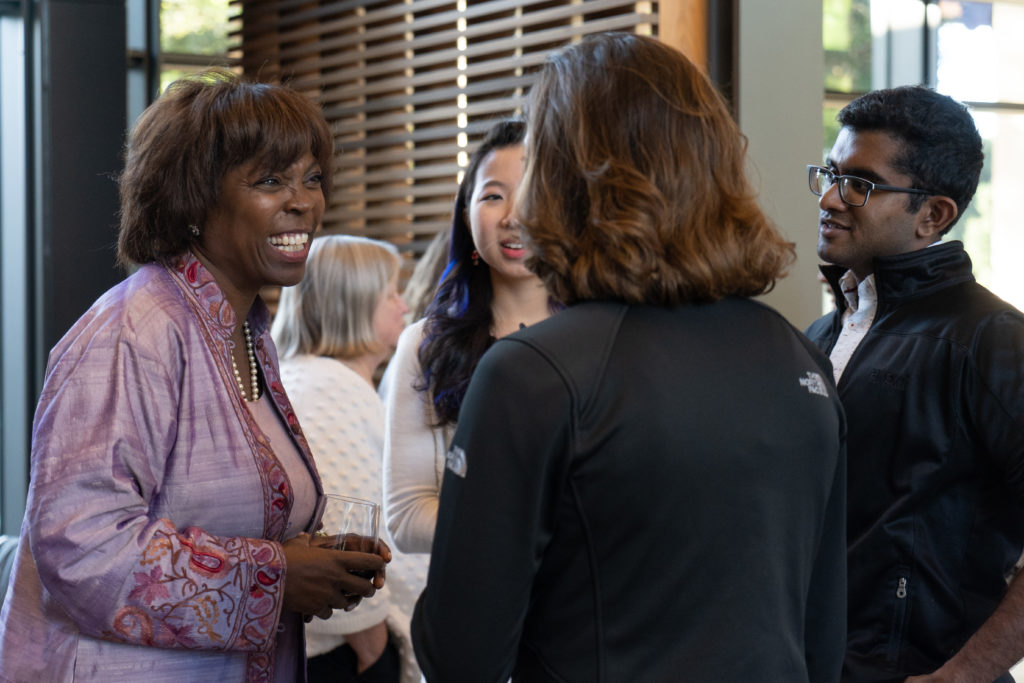Published: 10/04/2019
By Gina Yu, Stanford Global Health Media Fellow
More than 820 million people around the world don’t have enough to eat and their hunger affects us all. “Without food security, you will have no other security,” said David Beasley, the executive director of the World Food Programme, to an audience of Stanford members and local residents on Tuesday.
Beasley along with predecessor Ertharin Cousin, a visiting scholar with Stanford’s Center of Food Security and the Environment, helped shape the United Nations’ anti-hunger program into the world’s largest hunger relief organization, feeding over 90 million people every year.

In March 2017, the Trump administration considered pulling U.S. funding, which provides 40 percent of the program’s support. But by arguing that food insecurity drives terrorist groups, like ISIS using food to recruit members, Beasley was able to keep US funding and raise money internationally.
“If you’re not going to do this out of the goodness of your heart, then you better do this out of your interest for national security,” said Beasley.
Though Cousin lauded the efficacy of Beasley’s efforts, she questioned whether promoting food security as a solution for global security could incite safety issues for World Food Programme workers. “How does that affect the building of awareness and does that create more problems for the people working on the ground?” she asked.
There are countries the World Food Programme has struggled to assist due to safety concerns. In June 2019, Beasley suspended aid from Yemen due to diversion of food from vulnerable people by Houthis. Safety was also a huge factor. “You can get shot and killed or stabbed in a heartbeat,” Beasley said.
The World Food Programme has encountered another complex situation in Venezuela, which is in the midst of its direst food crisis in history. Almost 90 percent of the country is living below the poverty line with a substantial cut in government assistance food programs.
Though Beasley could not provide detail due to the sensitive nature of negotiations, he believes a resolution will come soon. “We’re on the ground…in the middle of negotiations as we speak, and we’re making tremendous headway,”
Future efforts will focus on self-sustainability, which is crucial for long-term food security. The program has rehabilitated about 400,000 acres of otherwise unusable land because of flash floods or drought, allowing hundreds of thousands of people food and job security that would no longer need direct aid.
Both Beasley and Cousin agree that with the technology and wealth available, no child should go hungry and there should never be another famine on earth. “There are [people] who don’t know where their next meal is, and they’re marching towards death. That is absolutely inexcusable,” said Beasley.

When asked by Cousin what his takeaway from his experience as director has been, Beasley said, “Go love your neighbor, first and foremost. Please understand the suffering world out there, and don’t underestimate the power you have as an individual…I have so much hope for the future but at the same time, a great fear form what I see because of a lot of destabilization. The world is very fragile…Loving your neighbor is the most powerful weapon.”